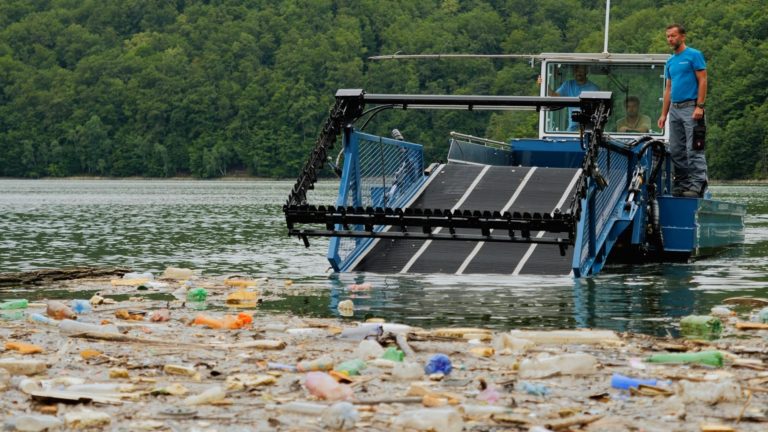
When it comes to sustainability, innovation is key as we rethink old ways, break down barriers and do things in a new and more conscious way.
With that in mind, here are our top three recent innovations that will no doubt help our planet and provide the next generations with a better future.
Our first sustainable innovation comes from Aachen in Germany, where a team of young entrepreneurs founded Everwave with the sole mission:
‘To clean rivers and protect the sea from plastic waste through technological innovation and ecological inspiration towards a sustainable future!’.
You may or may not know that every year more than 11 million tons of plastic end up in the oceans.
This not only has devastating effects on life underwater but on the entire environment, the economy and ultimately on all of us.
To stop litter from entering the oceans, Everwave relies on a combination of active and passive clean-up devices for rivers.
The floating platforms continuously collect and store rubbish that is carried by the current thanks to their functional architecture.
Even in difficult-to-reach locations, their adaptable drones and AI-supported trash collection boats can eliminate garbage hotspots throughout a large area.
Following recycling, the trash is converted into new goods utilising mechanical, thermochemical, and biotechnological techniques.
To date, Everwave has collected and processed more than 810,000KG of waste and they have only just started.
They also offer plastic credits for 1 Euro per credit which will remove 1KG of plastic waste from the waterways and oceans!
What a great way to help the planet.

Our next innovation begins in Herzogenaurach, Bavaria with the sports company, Puma who will be holding a first-of-its-kind global event taking place in London on 6th September.
The event will discuss solutions to some of the fashion industry’s most urgent sustainability issues, including waste, materials, and climate change.
Entitled ‘The Conference of the People’, PUMA has invited industry peers, NGOs, experts, end users and activists to discuss tackling waste, using sustainable materials and finding ways to put collaboration ahead of competition for a better future.
Earlier this year, PUMA reported that it had reduced its carbon emissions (including the use of renewable energy certificates) by 88% and by 2025, PUMA aims to make nine out of 10 products with more sustainable materials.
Bjørn Gulden, CEO of PUMA said:
‘We will focus on Gen Z during this event, as we want to give this generation a voice when it comes to the decisions that have to be made today to shape a more sustainable future.
At the United Nations they call it Conference of the Parties, we call it Conference of the People.’
Their global event will be hosted by activist actor Cara Delevigne and PUMA’s CEO and CSO and will be live streamed globally.
You can book tickets or find out more at pumacop.com.
We look forward to seeing the longer-term impact this event has and how a collaborative approach across the industry impacts the speed of change.

To show that sustainability news and innovations are global, our next story comes from France where the government is looking at an innovative way to battle both the cost of living crisis and climate change!
A €20 billion plan was approved by the French parliament last month in response to soaring inflation and anticipated energy shortages this winter.
One of the measures will permit and support the potential use of frying oil as car fuel, albeit that it must still pass through the Senate to be ratified into law.
According to the ecologists who pushed for the bill, “while diesel exceeds two euros per litre at the pump”, using used oil as a fuel “provides immediate relief for the French people’s wallets and limits pollution from diesel engines”.
The new law is the result of an amendment tabled by MP Julien Bayou, secretary of the French Green Party.
According to the MP’s written arguments, ten litres of correctly reprocessed waste oil can give nine litres of fuel.
According to Science Daily, one litre of oil recycled into biofuel avoids the emission of 3 kg of CO2, a reduction of 92% compared to diesel fuel use.
And that’s a wrap – we hope these three stories give you hope that our future is bright and that whilst we are making changes in our lives, governments and organisations (with our help) are making changes too.
If you want to do your bit to become more sustainable whether as an individual or a business, Play It Green can help in a cost-effective and impactful way.
Start your journey today, by finding out more using the form below: